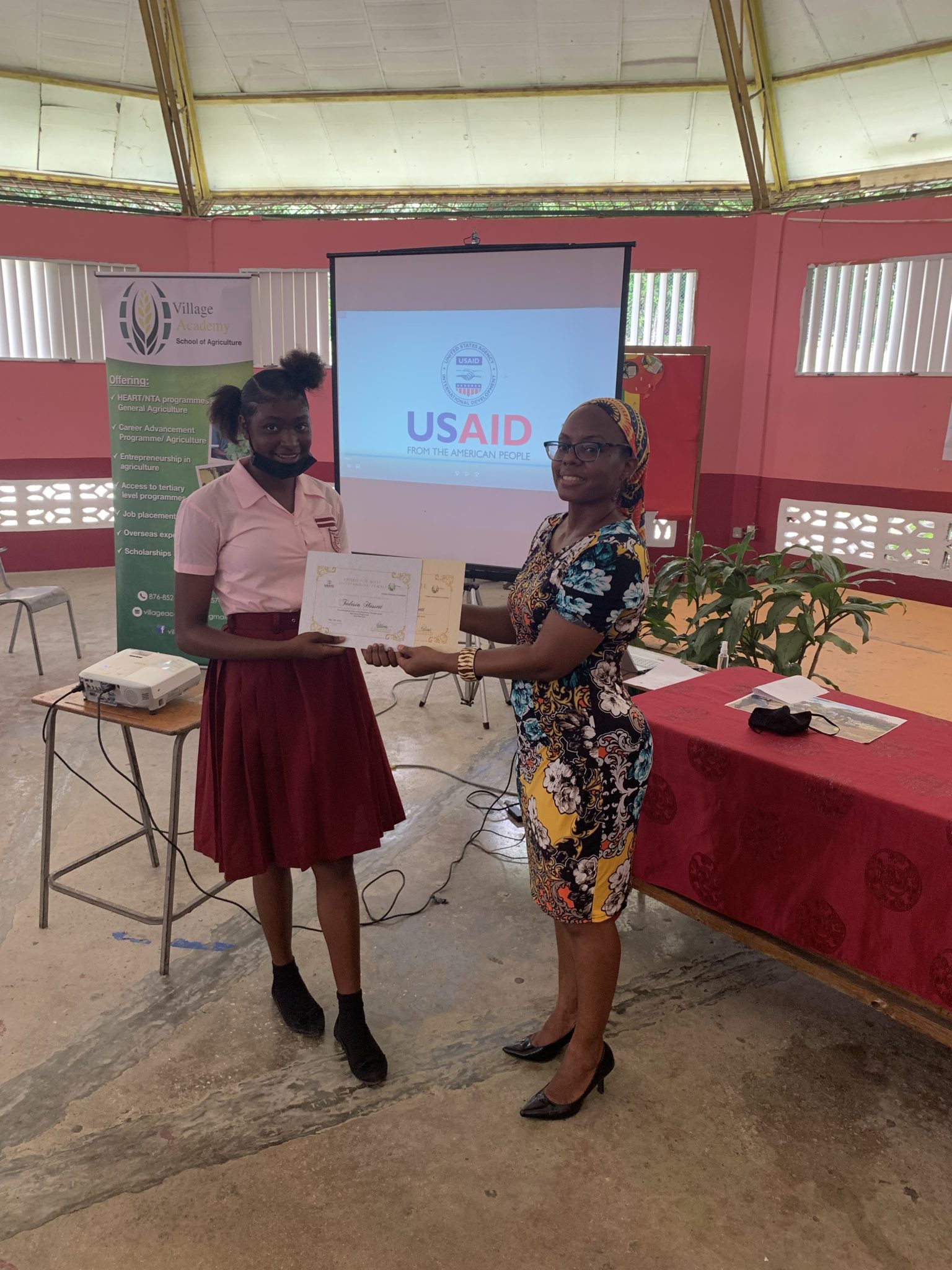Flanker Youth Learn Crime-Prevention Skills
By: , June 2, 2022The Full Story
Young people in Flanker, St. James, have gained skills in agriculture, while being empowered to steer away from crime, following participation in the Positive Pathways social agriculture programme.
The initiative was undertaken by the United States Agency for International Development (USAID) in collaboration with the Flanker Resource Centre, and the Village Initiatives Foundation/Village Academy International.
Launched on April 9 and culminating on May 17, the programme employed the use of concepts from the behavioural sciences and land-based therapy (agriculture) to equip the young people, ages 13 to 17 years old, and their parents, with skills in decision-making and conflict resolution.
The participants were engaged through youth and parent workshops as well as an agricultural camp that was executed in St. Ann.
Agriculture was utilised as a crime-prevention strategy by focusing on the positive aspects of young people, their resourcefulness, and opportunities for enterprise.
At the closing session held at the Spot Valley High School in the parish recently, Chief of Party for the USAID’s Positive Pathways programme in Jamaica, Paul Teeple, said the entity is committed to investing in young people as a means of helping to prevent crime in Jamaica.
Positive Pathways works with Jamaican organisations and helps families, caregivers and youth in vulnerable communities to develop the resilience and skills needed to prevent and avoid violence.
For her part, Programme Manager of Village Initiatives Foundation/Village Academy International, Dr. Khadijah Williams, urged the youngsters to use the strategies shared to replace negative expectations and images of themselves and their community with positive ones.
“People’s negative expectations of you do not need to become your reality”, she pointed out.
She highlighted the value of agriculture therapy in connecting young people to the land and to ensure the future of food safety.
“As a pilot programme, there is potential for development in the Caribbean where agriculture remains a high priority and the need for youth work is on the rise,” Dr. Williams pointed out.
The graduates of the programme are now proud ambassadors who will ensure that other young people will learn new strategies to improve their decision-making and conflict resolution skills.





